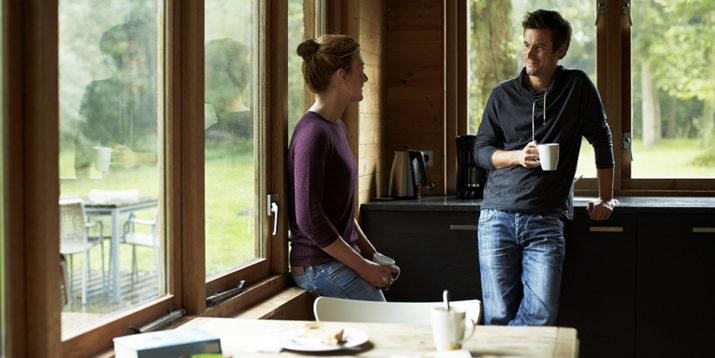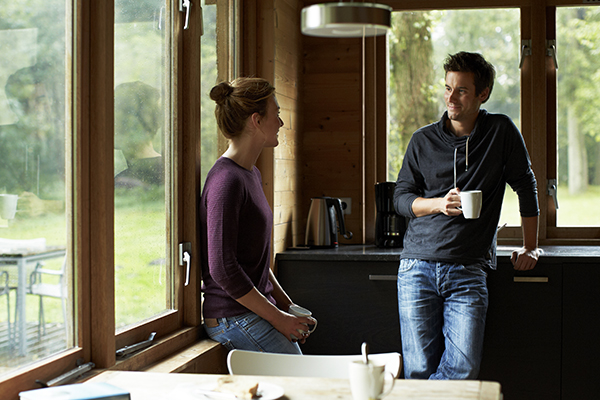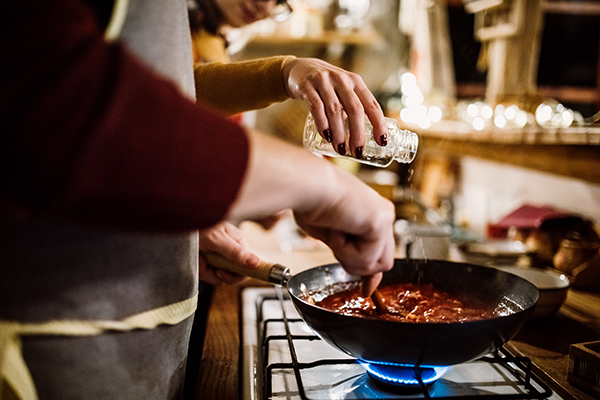How to Have a Healthy Relationship When You’re Home Together 24/7

With so many of us spending more time at home due to the pandemic, learning how to have a healthy relationship with those you live with is more important than ever.
Multiple people working, learning, or social distancing under the same roof can put strain on any relationship.
But by practicing the three Cs of how to have a healthy relationship (compromise, commitment, and communication) your connection could become stronger.
In fact, you may even learn something new about your sweetie or roommate.
Here are six important elements of learning how to have a healthy relationship while staying home, both now and in the future:
1. Be honest
“Being clear about what we need is important,” says Julie Booksh, M.A., L.P.C., a marriage and family therapist.
While one person in a relationship may need alone time, another might need together time. Communicating these needs is crucial to healthy romantic and platonic relationships.
“Make room for each person’s needs,” she suggests, even when it can feel tough to do so.

2. Listen to each other
Now more than ever, listening to the people we live with can help maintain a healthy relationship.
“The pandemic has brought up so many issues for everyone, individually and collectively,” Booksh explains. “Spend time talking about how all of this has been for you.”
She says to discuss your fears and your emotions, which can include sadness, anxiety, grief, confusion, or gratitude.
It can help remind you both what truly matters at the heart of your relationship. Pay attention to what this helps you notice and learn, Booksh adds.

3. Take breaks
Breaks are an overlooked but crucial element of a healthy relationship. They can come in many forms, like breaks from the news, your home (if possible), or even your partner or roommate (in the form of “me time’).
“Get outside and breathe some fresh air,” Booksh recommends, whether that’s solo or together.
At home, embrace silent breaks.
“Being quiet together can be powerful, too,” she says. “Sometimes we tend to fill up the space with words. Sitting together while each person reads or over a cup of coffee can build healthy relationships.”
4. Acknowledge things are tough
Things won’t always be rosy, even when you find a “me time” and “us time” balance that works for you.
Counselor Kelly Houseman, M.S., LLPC, says we have to recognize and accept the changes the pandemic has caused.
“Being at home and together so much can be a big adjustment for many of us,” she explains. “Remember it’s OK to both be cherishing this time as well as needing our own personal space right now, too. It doesn’t have to be one or the other.”
In other words, you can love someone and still struggle to be around them 24/7!

5. Make plans
A silver lining of the pandemic is a chance to spend time with partners or roommates we otherwise wouldn’t have, Houseman says.
“We will likely never have this much time together again,” she says, “so let’s use this time to really get to know our partners and learn more about them.”
One way to do so is to explore mutual interests such as watching a good TV series, learning a new skill, or playing a game you can both enjoy.
You could also start a workout program like 30 Day Breakaway, so you’ll grow closer as you work toward a shared goal. Right now, any extra motivation is welcome!
“Finding ways to have date nights at home can be a challenge you can work on together,” Houseman also suggests. “Date nights at home with a non-sweatpants look can be a good way to bring back normalcy and spark to the relationship.”
Another idea is to cook together, which can also develop a healthier relationship with food.
6. Have fun!
In strong relationships, we need to cultivate the “ability to laugh at our idiosyncrasies and imperfections and not take ourselves or the journey too seriously,” Booksh says.
You can even practice getting to a place where you and your partner or roommate can look back at what you previously believed was a stressful or upsetting situation and laugh about the experience.
Laughter can lead to learning, which can also lead to healing and bonding, all of which can help make relationships at home that much more special.
